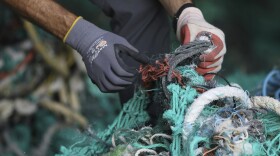The City and County of Honolulu is not able to effectively enforce the mandatory 14-day quarantine on visitors staying in vacation rentals, according to one senior official.
Speaking before a panel of state senators on Tuesday, the top vacation rental enforcement official for Oahu said her department isn’t set up to track the comings and goings of individuals.
Kathy Sokugawa is the acting director of planning and permitting, the department responsible for enforcing the city’s short-term rental ordinance. She says the city doesn’t have enough inspectors to effectively monitor activity at reported vacation rentals.
“We definitely aren’t able to help with the self-isolation and quarantine,” Sokugawa noted.
The inability to actively monitor properties suspected of being used as vacation rentals led the city to pass Bill 89 last year, which made it illegal just to advertise an unpermitted rental for a period of less than 30 days. Rentals for 30 days or more are still allowed and do not require a special permit under the law, officially known as Ordinance 19-18.
The advertising provision was meant to be a work-around to in-person inspections, which are costly both in terms of time and labor. In the months after it took effect, the law did lead to a substantial reduction in the number of unpermitted rentals operating on Oahu.
But Sokugawa told senators that hosts have already found loopholes in the law.
“You can have a tourist staying there for a week. That’s less than 30 days, so it’s illegal,” she explained. “But if they technically paid for a period of 30 days and they have a lease that they can show you, that’s not illegal.”
This is known as the “one rental every 30 days” loophole. Host argue that practice is in line with Bill 89’s intent to reduce the number of visitors staying in residential neighborhoods. Authorities admit that it’s legally challenging to prove that a given booking was intended to be for less than 30 days.
Vacation rentals have been designated non-essential and ordered to cease operations during the pandemic by both Gov. David Ige and Honolulu Mayor Kirk Caldwell, although traditional hotels are still permitted to operate.
Despite the prohibition, Sokugawa says her department has issued more than 300 warnings to suspected vacation rental operators.
Inspectors are using data collected from arriving travelers by the Hawaii Tourism Authority to identify properties being listed as short-term rentals. However, often having the address of a rental is apparently not enough to issue a violation.
Although it is a violation of state law to knowingly make a false statement to a county or state inspector, Sokugawa said owners of suspected vacation rental properties contacted by her department regularly dispute the allegation. She characterized those statements as lies.
“People say, ‘That’s not me. You mailed it to the wrong address. Yeah, I own that house, but we don’t do that. My grandmother lives there,’” she recounted before the committee. “People lie in many different ways, so it’s always a cat and mouse game.”
The latest data on passenger arrivals showed that just under 1,100 travelers landed in Hawaii on Tuesday. Around 400 were returning residents, while 300 were visitors.
Local health officials say that the vast majority of imported-coronavirus cases have come from residents returning from travel.



